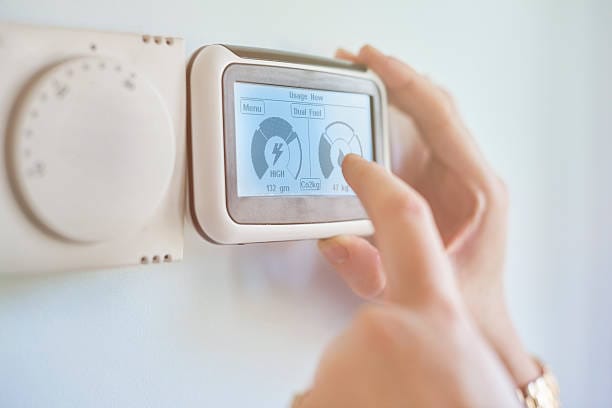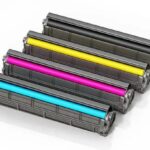In most factories, warehouses, or commercial buildings, electrical panels act like the central nervous system, directing power to machines, lights, and automated controls. Keeping those panels safe, easy for authorized staff to reach, and in line with safety rules is therefore a top priority. The simplest way to do that is to install the right electrical panel lock.
Even though locks are usually a small detail, picking the wrong one can turn a smooth operation into a compliance headache or, worse, an accident waiting to happen. For buyers and engineering teams, teaming up with a seasoned industrial products distributor guarantees that every latch, hasp, or padlock meets the local code, shrugs off plant conditions, and actually works with the equipment.
This guide breaks down the selection process for electrical panel locks, highlighting the must-know features and giving practical tips that purchasing, maintenance, and safety managers can use right away.
Why Electrical Panel Locks Matter in Industrial Design
Electrical panel locks do more than just close a door – they are a vital safety feature that protects personnel from accidental contact with high-voltage systems and ensures only trained professionals access critical components.
The right locks do far more for a control cabinet than simply keep a door closed:
- They stop curious hands from tampering or vandalizing inside panels.
- They lower the chance that a loose cover will cause an accidental shutdown or an arc flash.
- They help workplaces meet safety rules like OSHA standards and NFPA 70E guidelines.
- They keep the IP or NEMA rating intact, shielding circuits from dust and water.
- They extend the life of sensitive controls by keeping them behind a secure door.
When buying from an industrial products distributor, companies can choose panel locks built to shrug off vibration, corrosion, and changeable access needs.
Features That Matter in an Electrical Panel Lock
Picking a panel lock has less to do with whether it fits the hole and more with how well it works over time. B2B buyers should keep these points in mind:
Material and Finish
The metal inside the lock shapes its strength and how quickly it rusts or seizes. Stainless steel and zinc alloys hold up well, and powder or chrome coatings add a layer against moisture and chemicals.
For outdoor boxes or food-processing areas, smooth stainless steals the show and survives frequent wash-downs and humidity dips.
Locking Mechanism Type
Panel locks come with several working styles, each suited to a different job:
- Quarter-turn locks fit tight spaces and guard against casual tampering, giving moderate security without the fuss of a key.
- Compression latches seal tight, keep dust out, and stop rattles from vibration.
- Keyed or tool-operated locks shield sensitive areas and meet workplace safety rules.
- Multi-point systems pull several edges of a larger door together for extra strength.
Pick the right kind based on panel size, where it will be used, and how much security you need.
Environmental Rating (IP/NEMA)
Every lock should match the rating stamped on its enclosure.
- IP65/IP66 shrug off fine dust and heavy water jets.
- NEMA 4/4X resist corrosion and suit wet, open-air spots.
A skilled industrial distributor can suggest locks that keep or boost these scores so the entire cabinet stays compliant.
Ergonomics and Accessibility
Techs often need electric panels open fast-for routine checks or sudden shut-offs.
Select locks that offer:
- a grip large enough for gloved hands.
- clear locked/unlocked status.
- simple operation with few tools.
Smart ergonomics cut the risk of dropped tools, crammed fingers, and tired backs around busy control rooms.
Plays Nice with Safety Interlocks
Most new electrical setups come with safety interlocks that stop operators from popping open a panel while power is flowing. When picking a panel lock, look for one that either works with these switches or has its own built-in version. This small detail adds serious peace of mind for both everyday staff and the maintenance crew.
Where Strong-Eyed Panel Locks Really Matter
Team up with a reliable electrical-panel-lock and industrial-parts supplier, and you’ll keep systems humming in every part of the economy, including:
Manufacturing and Automation
Locks on control cabinets, power panels, and robot bays need to shrug off constant vibration and still let authorized hands through all day. In fast lines, a chair through dozens of reaches mustn’t subtly work loose, or else safety and uptime suffer.
Utilities and Energy
Substations, solar fields, and battery-storage containers are familiar to technicians, yet they spend their working lives outside. That means locks must laugh at salt spray, blistering sun, and cold snaps without rusting, fading, or binding.
Transportation and Logistics
Rail and airport control rooms, reefed containers, and fleet-terminal gear are tossed, jostled, and stacked into place time after time. Locks sitting on these cabinets must swallow shocks and keep breathing easy through rough handling.
Food Processing and Pharmaceuticals
Hygiene rules inside plants can’t be ignored, so every component of a lock-including screws-must stay clean and tough. Flush smooth profiles are also a must, since edges and corners hiding debris become cross-contamination red flags during inspections.
Telecommunications and Data Centers
Network closets and backup-power areas should be locked down tight, with only trained staff able to get in. For those spots, key locks or keypad codes are a simple way to boost security and protect the data inside.
Sourcing Smart: How to Choose the Right Industrial Products Distributor
Picking the right industrial products distributor matters just as much as the gear you plan to buy. A good partner brings you:
- Product variety-a range of locks, materials, and finishes that fit every application.
- Technical support-guidance on which lock suits your enclosure class, industry rules, and how often it gets opened.
- Compliance expertise-know-how on UL, CE, RoHS, and any other mark your electrical cabinet must carry.
- Customization options-willingness to make special sizes, private-label key sets, or bulk runs for OEM projects.
- Quick delivery and logistics-speed that keeps your line running and your project on-time.
Team up with a distributor that covers the whole product life, from first choice to spare part, and you turn purchasing into a cost-saving, hassle-free process.
Trends in Panel Lock Technology
As factories upgrade their controls and connect everything online, even panel locks need to keep up. The latest trends show:
- Smart locking systems-electronic PIN pads or RFID tags that log who enters so you always know the story.
- Integration with IoT platforms: Smart locks can now push alerts and usage stats straight to a single online dashboard.
- Tamper detection: Built-in sensors send a warning if anyone tries to force the lock or drill through the casing.
- Eco-friendly materials: Every part is recyclable, and the finish is low-VOC, so the lock fits green building standards.
These upgrades give regulated industries clearer insights and quicker response times, turning security into an open book.
Conclusion
In the world of industrial gear, access control isn’t just a nice-to-have; it guards people, meets rules, and keeps machines running. Picking the right electrical panel lock means operators, maintenance crews, and networks stay safe, no matter how harsh the floor gets.
For B2B buyers, working with a reliable industrial products distributor is the easiest way to find locks that shrug off dust, pass audits, and still fit the budget. Whether you’re securing one panel or wiring up a whole control room, treat the panel lock as a core piece of your safety blueprint.







